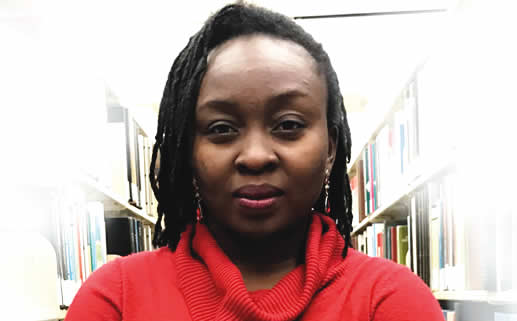
During an academic conference a few years back, I was approached by two students upon learning that I was Nigerian. They had focused their academic research on the well-known cross-dresser Idris Okunenye, popularly known as Bobrisky, and were curious to learn more about her. At that time, Bobrisky was still gaining recognition. One of them inquired about how she navigates in a country like Nigeria that strongly opposes any display of nonconforming sexuality. I mentioned that Bobrisky’s ability to thrive partially stemmed from the internet, where she could be observed from a distance through the screen of our phones. This virtual space shielded her from physical harm.
Another significant factor was money. Bobrisky grasped a fundamental aspect of Nigerian society: despite our emphasis on “African values and morals,” we idolize wealth. Money has a way of compromising even our strongest moral convictions. With money, one can manipulate the collective moral compass. Bobrisky did not seek typical acceptance as a cross-dresser advocating for societal approval. Instead, she disregarded conventional norms and set her own bold rules for public interaction. Unlike individuals in other places who use their gender transition as a platform to challenge established powers on behalf of marginalized groups, Bobrisky adopted a different approach. In social circles, she portrayed herself as a glamorous figure, akin to a modern feminism icon loaded with cash. Bobrisky also introduced the concept of a “bae” as part of her persona. Understanding that in Nigerian political culture, one’s influence is often tied to shadowy affiliations, she claimed to have a male benefactor. Whether these mysterious backers existed or not was inconsequential. What mattered was Bobrisky’s astute grasp of Nigerian dynamics and her reflection of our society’s characteristics. This strategy proved effective for her until it eventually backfired.
In the future, when Bobrisky’s story is recounted, some might attribute her downfall to the incident where she accepted an award designated for biological women. However, the underlying issue was how her glamorous portrayal of femininity challenged the traditional symbol of masculinity: the penis. By transitioning from man to woman, Bobrisky defied the notion that manhood is the ultimate validation men strive for. Choosing femininity over manhood, she positioned the penis as merely a natural attribute that could be embraced or rejected. For men whose identity is closely linked to their masculinity, Bobrisky represented an affront. How could she diminish the importance of the male anatomy, especially when she, as a woman, wielded economic power? This gender fluidity and wealth posed a threat to men whose masculinity was constantly undermined by Nigeria’s emasculating economic climate. Bobrisky was not the conventional female benchmark against which they could measure their manliness. Hence, Portable’s song labeling Bobrisky as a “disgrace to Brotherhood” struck a chord with them.
When the male ego could no longer tolerate this challenge, they resorted to baseless accusations against Bobrisky. Exploiting the prevalent misconduct within Nigeria’s law enforcement agencies, ranging from the police to the Department of State Services, the Economic and Financial Crimes Commission, and even judges, they seized the opportunity. Individuals operating in bad faith wield considerable power in such a system. During her court appearance, Bobrisky anticipated fair treatment but encountered a judge who viewed her as a threat to conventional masculinity.
By identifying as “male” when prompted by the judge, Bobrisky likely aimed to soothe the judge’s bruised ego. Nonetheless, she stood little chance in that courtroom. The severity of her sentence indicated that the judge was embroiled in a different cultural battle. If a harsher punishment were permissible, the judge would not have hesitated. Sentencing someone for an offense that is widespread among Nigerians suggests a lack of ethical judgment. The trend of reporting individuals to authorities for minor infractions will likely prevail. Instead of resorting to traditional means of retribution, individuals now turn to law enforcement agencies. The EFCC, in need of distractions from the government’s economic missteps, inadvertently entertains the public with such affairs.
Bobrisky’s case underscores society’s fixation on masculinity. Following her arrest, many clamored to unveil her physical attributes. Even after her incarceration, inquisitive individuals persisted in prying into her privacy. Prison officials, instead of rebuffing intrusive inquiries, divulged personal details about Bobrisky. Subsequent media coverage further perpetuated this invasion of privacy. Such voyeuristic behavior reflects a lack of respect for human dignity, despite claims of upholding superior African values.
The most disheartening aspect of the Bobrisky saga is witnessing self-proclaimed critics, social advocates, and moralists endorsing (and even celebrating) the judicial travesty that led to Bobrisky’s imprisonment. Some justify their stance by asserting they aim to protect women, but their underlying motives are questionable. Criticism of Bobrisky’s actions, such as accepting an award intended for women, disproportionately emanates from men, not women. The paternalistic approach of men dictating what constitutes an insult to “every woman” is concerning. Their discomfort with Bobrisky’s nonconforming gender identity fuels their desire to see her eliminated. The inconsistency in their ideologies and politics is glaring.
When addressing broader political issues like corruption, governance failures, or human rights elsewhere, these individuals exhibit unwavering moral clarity. However, their perspective on the freedom of self-expression, exemplified by Bobrisky, reveals a contradictory stance. They advocate for human freedom, yet their acceptance is confined to what is convenient for them. This limited worldview is detrimental to the inclusive coexistence of diverse individuals within a society.
